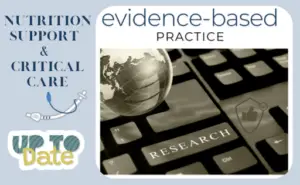Self-assessment tracking is a systematic approach to monitoring your learning progress. It involves reflecting on your knowledge and skills, assessing your performance, and making adjustments to your study strategies as needed. By actively engaging in self-assessment, you become more aware of your learning process, which helps you study more effectively and efficiently.
The “Why”
Increased Self-Awareness
Self-assessment tracking helps you become more aware of your strengths and weaknesses. By regularly evaluating your understanding of the material, you can pinpoint specific areas that need improvement. This self-awareness allows you to focus your efforts where they are most needed, leading to more effective study sessions.
Enhanced Motivation and Accountability
Tracking your progress can be highly motivating. Seeing evidence of your improvement boosts your confidence and encourages you to keep going. Additionally, self-assessment tracking holds you accountable for your learning. When you regularly assess your performance, you are more likely to stay committed to your study plan and make necessary adjustments to stay on course.
Better Time Management
Self-assessment tracking helps you identify how much time you need to allocate to different subjects or topics based on your performance. By understanding which areas require more attention, you can prioritize your study time more effectively and avoid wasting time on concepts you already understand well.
Personalized Learning
Everyone has a unique learning style and pace. Self-assessment tracking allows you to tailor your study strategies to fit your individual needs. By identifying which methods work best for you, you can create a personalized study plan that leads to a more efficient and enjoyable study experience.
The “How”
Set Clear Objectives
Start by setting clear objectives for your study sessions. Define what you want to achieve and the specific topics or skills you need to master.
Use Various Assessment Tools
Incorporate different assessment tools to evaluate your understanding. Practice tests, quizzes, flashcards, and self-reflection journals are effective ways to assess your knowledge. These tools provide immediate feedback and help you identify areas that need further review.
Keep a Study Journal
Maintain a study journal to document your progress. Record what you studied, how well you understood the material, and any challenges you faced. This journal serves as a valuable reference for tracking your growth and identifying patterns in your learning.
Adjust Your Study Plan
Based on your self-assessment results, adjust your study plan as needed. Focus more on areas where you need improvement and modify your study techniques to address specific challenges. Flexibility and adaptability are key to effective self-assessment tracking.
Conclusion
Incorporating self-assessment tracking into your study routine fosters self-awareness, motivation, and personalized learning, ultimately leading to more effective and efficient study sessions.
By regularly evaluating your progress, setting informed goals, and making necessary adjustments, you can enhance your learning experience and improve your certification success.




